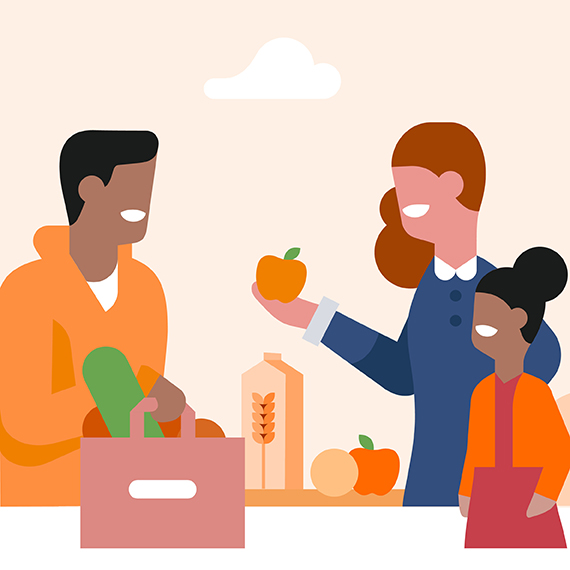
Sustainable products in the grocery trade
1. Products compliant with K Group’s sustainability policies
This category comprises products that contain sustainable raw material or materials in compliance with sustainability policies guiding our sourcing. Sustainability policies have been drawn up for palm oil, soy, cocoa, wood, cotton and fish and shellfish products. These raw materials are of critical importance for climate and biodiversity, and criteria that support sustainable production have been determined for their purchasing.
2. Products with sustainability certification and labelling
This category contains products which have been granted one of the following sustainability certifications or labels awarded by a third party:
3. Plant-based products
This category contains plant-based products which can replace animal based products such as meat and dairy products. This category also contains new plant-based food innovations, such as the Finnish fava bean product Härkis and Pulled Oats made of oats and legumes. By reducing the consumption of animal-based products we can reduce the climate impact of our diet.
4. Circular economy products
This category contains products where the design is based on material efficiency and recyclability. The aim of the circular economy is to minimise consumption of virgin natural resources and to reduce climate and environmental impact. We are developing solutions in which we, in cooperation with our partners, utilise industrial side-streams or food waste, for example. Packaging development also aims at promoting the circular economy.
For example, in the cooperation between Pirkka and Gasum, biogas is manufactured from inedible food waste from K-food stores, which is utilised as energy in the manufacturing of new Pirkka products. Another example are nonfood products where the materials are chosen based on their recyclability (such as recyclable plastic) or which have been made using parts of raw material which would otherwise remain unused (such as bagasse made of the residue of sugarcane).
5. ’Offset carbon footprint’ products
With our ‘Offset carbon footprint’ products, the carbon footprint arising from the product’s production has been offset with, for example, reforestation projects, where the trees planted absorb carbon dioxide from the atmosphere as they grow. See a listing of K Group own brand products whose carbon footprint has been offset.
Percentage of sustainable products
Percentage of sustainable products of grocery trade’s net sales in 2023: 40% (2022*: 39%).
*excl. Kespro’s sales data 2022
Sustainable product label in use at Kespro
Kespro makes it easier for its customers to make sustainable choices by marking the background information of its products with the Sustainable Product label if the product has been manufactured sustainably.
Kespro defines a product a Sustainable product when it is:
• A product in line with Kesko’s sustainability policies guiding our sourcing
• A product with sustainability certification and labelling
• A circular economy product
• An ‘Offset carbon footprint’ product
• A plant-based product which can replace animal-based products such as meat and dairy products
In 2022, Kespro had a total of 2,712 products with the Sustainable Product label in its foodservice product selection.
